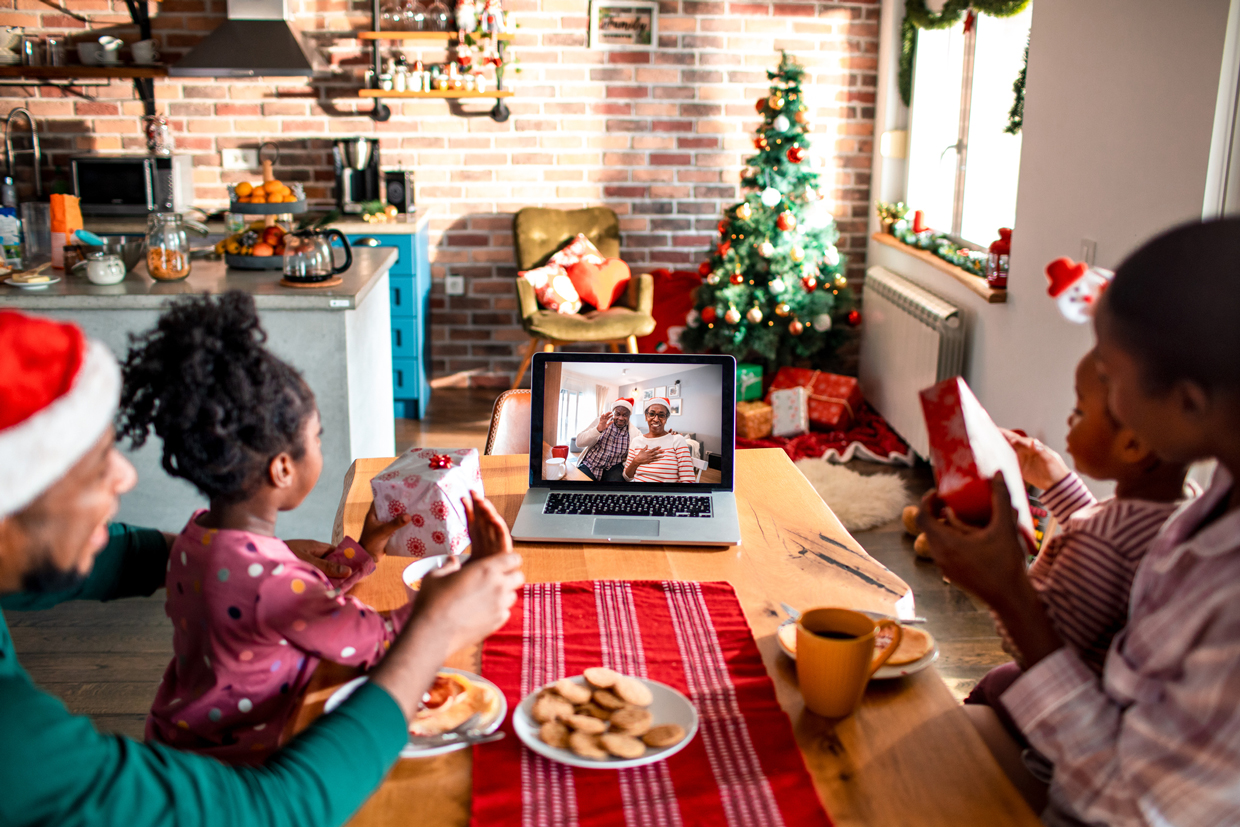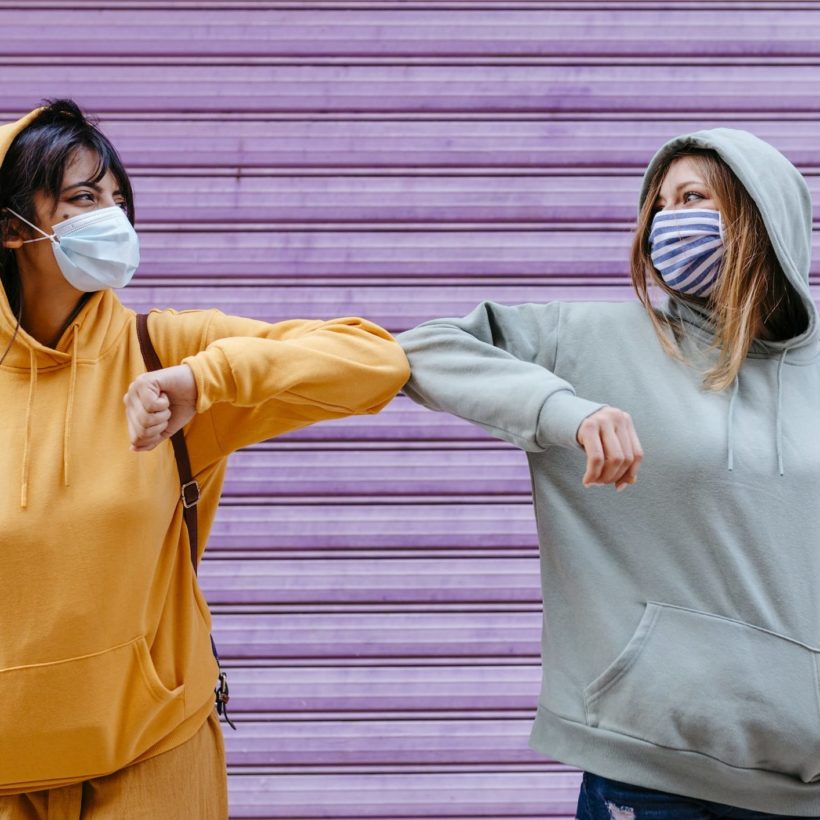This time last year, we were preparing for what we knew would be an untraditional holiday season. We were urged to avoid indoor gatherings, maintain social distancing and follow all possible COVID-19 protocols to keep ourselves and each other safe. One thing on nearly everyone’s minds was, “well, at least next year we’ll be back to normal.”
And yet here we are. The pandemic is ongoing. And for many, the holidays still won’t look the same.
Thankfully, with vaccinations, we’re able to gather in small, COVID-conscious groups relatively “safely” these days. But as we know by now with COVID, there is always some level of risk. And in dealing with family and extended family or friends, there are also different levels of comfort.
So, to help you navigate the inevitable awkward moments of when your boundaries don’t necessarily match up with certain friends or family members, we spoke with Kelley Stevens, Licensed Marriage and Family Therapist, and Emma Demar, LCSW for help navigating such sensitive situations.
Navigating the Holidays Amidst a Pandemic
Boundaries are important in nearly every aspect of our lives, but they are even more important right now. Kelley advises, “It is important to be clear and consistent about your boundaries surrounding pandemic safety. Make sure to communicate any of your boundaries in advance of any gatherings.”
But, this doesn’t mean a dictatorship. If you are invited to someone else’s home, Kelley suggests calling ahead and asking what, if any pandemic guidelines they have in place. She explains, “The host is allowed to choose what pandemic guidelines they plan to have for their gathering, and you get to decide whether you are comfortable with those guidelines and if you want to attend their event.”
If you’re the host, be sure you clearly communicate your own pandemic guidelines beforehand, to all guests. Nobody likes surprises and knowing what to expect ahead of time can help guests feel comfortable, and avoid any unpleasant or uncomfortable moments.

When to Decline
If you’re invited to an event that is too large, where the vaccination status of all guests is unknown, or it’s outside of your comfort zone for other reasons, it’s important you feel comfortable declining. “It’s completely acceptable and understandable to decline invites,” Emma says, adding, “It’s healthy.”
The most effective way to decline an invitation is to be clear and concise. “Don’t over-explain your reasons or say more than you need to, as many of us often do,” she advises.
Similarly, Kelley suggests responding with something like, “ ‘Thank you for the invitation. This year, our family has decided to skip events that ___________ so we won’t be able to attend. But we really appreciate your invitation and look forward to getting together next year!”
If your boundaries include avoiding indoor events, being around unvaccinated individuals, or avoiding large crowds, it’s okay to name them for the sake of clarity. The key is in keeping the RSVP short, stating how grateful you are for the invitation, and clearly articulating your boundary without being judgmental or shaming.

Communication is Key
When it comes to differences of opinion, politics, and health things can get pretty ugly, fast. The key to limit as much unpleasantness and discomfort as possible is to communicate.
Emma says, “I don’t think the idea is to ‘avoid’ arguments or tension, as those things are inevitable and sweeping things under the rug is never a good idea.” But, she continues, “it’s important to know which battles are necessary to fight and how much energy you are willing to give to them.” Taking a step back and keeping perspective is key.
Remember, we’ve all been through something unprecedented and quite traumatic, and this is your friends and family you’re talking about. While it doesn’t mean you have to make concessions regarding your boundaries or comfort zones, it does present a great time to practice empathy. “Realize that the holidays can bring up stress and anxiety for everyone. Try to understand where others are coming from while still standing firm in your own boundaries,” says Kelley.
She adds, “Remind yourself that it is okay for you to disagree while still being kind.”







